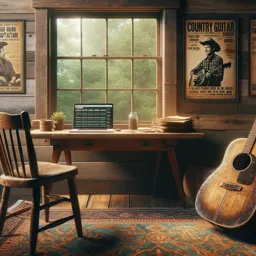Choosing a guitar can be a daunting task, especially if you’re a beginner without much experience in the subject. With so many types, brands, and models available, it’s important to consider your musical goals, playing style, and, of course, your budget. Here are some tips to help you choose the guitar that’s right for you.
Define your musical goals – Before you buy a guitar, it’s important to have a clear idea of your musical goals. Do you want to play at home to relax and have fun, or are you looking to play in an ensemble or band? Do you want to focus on a specific style like classical music, jazz or rock? Keeping this information in mind can help you choose the right guitar for your needs.
Consider the size of the guitar – The size of the guitar is important, especially if you are a beginner or if you have small hands. There are different guitar sizes available, from smaller travel guitars to large, more elaborate guitars.
Choose a guitar that suits your playing style – Playing style can influence your choice of guitar. If you prefer to play simple chords, a steel-string guitar may be your best choice. If you like to play more complex songs with fingerpicking and fingerstyle techniques, a nylon string guitar may be more suitable.
Try different models and brands – When choosing a guitar, it’s important to try different models and brands to get an idea of which sound and feel you prefer. Consider visiting a music store or asking friends or music teachers for recommendations.
Consider your budget – The price of a guitar can range from a few hundred to several thousand dollars. It is important to choose a guitar that fits your budget. If you’re a beginner, it might be a good idea to choose a more affordable guitar, and then upgrade to a better model as per your skill and need.
Read reviews and reviews – When researching guitars, read online reviews and reviews to learn more about different models and brands. This can help you get a better idea about the quality and performance of each guitar.
Choosing a guitar that fits your needs and your budget can seem daunting, but by following these tips, you’ll be ready to make an informed decision. Remember to try different guitars, choose a model that suits your playing style, and consider your budget before making a final decision. With the right guitar, you’ll be ready to play your favorite songs and have fun exploring the world of music.

























